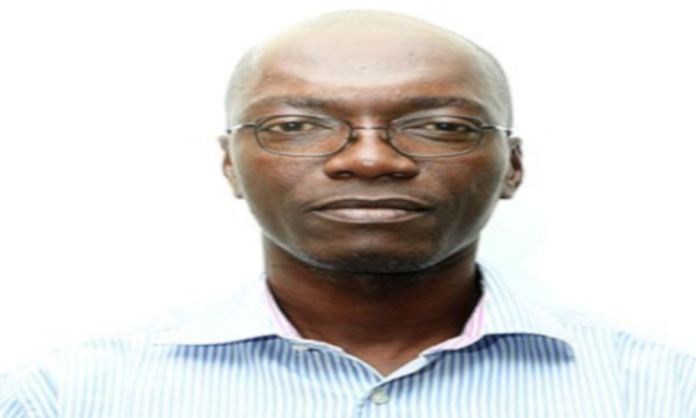
Essa Sowe, deputy General Secretary for the Gambia Teachers Union (GTU), has said they have a feeling that Government had stopped “taking the education sub-sector seriously”.
Mr Sowe, in an interview with The Point yesterday, Thursday, said the government had never provided what was required to run education, adding that they werenot even honoring what they had approved.
He noted that when they needed, for example, 10 from government, the government would approve 8 and give them 6 not even at the right time that they needed.
“We want Government to take seriously and consider increasing its investment in education and make sure the mistakes of yesterday in terms of not honoring what is required of them is averted,” he warned, saying:“It is enough and we want to see that these things are addressed and addressed once and for all.”
He added: “We also want government to honour the cash plan of the ministry from the GLF because without the GLF, education will be seriously challenged.”
DGS Sowe further said that considering the spirit of their last discussion with the Ministry of Finance, Ministry of Public Service, and Education Ministry, they only hope and pray that the “agreements and concerns raised are kept in view” and in consideration of the recurrence of such unfortunate situations.
He stated that it was good that Government engaged them, saying: “We have agreed that they need to improve their communication with the union, provide us access to information and data because as major stakeholders we have the right to know what is exactly happening, particularly with the Access to Information Act.”
According to Sowe, if government had failed to pay the over D73 million arrears it owed schools, there would have been severe consequences and implications.
He said their challenges were enormous, adding that “the biggest is the Ministry of Finance’s lack of understanding” of the use of the School Improvement Grant (SIC) funds.
He added that another challenge was the Gambia Teachers Union Cooperative Credit Union (GTUCCU) which was facing pressureof school managements asking for overdrafts to run their schools.
“We had certain instances where head teachers took personal loans to be able to run some administrative needs,” he recalled, saying new head teachers in schools assumed responsibilities with “barely any cash” and were in “serious nightmares”.
Mr Sowe explained that some schools, particularly the Upper and Senior Secondary Schools, provide subject allowances which are also attached to the SIG.
“One of the most important aspects has to do with the salaries of the ancillary staff as some schools are paying their caretakers, bursars, cleaners, night watchmen from the SIG. So, no SIG means no salaries for this vulnerable group,” he recounted.
He says if schools, particularly environmental studies, want to organise excursions and field trips, those expenses are plugged from the SIG, adding that minor maintenance of school facilities during the rainy season are also charged on the SIG and some schools and staff quarters have been destroyed.
“More importantly 60 percent of the SIG goes towards quality education. So if SIG is not coming, it means we are settling for failure.”
However, he said they had succeeded in educating them.
Mr Sowe also revealed that government was also owing WAEC millions of dalasis and they use the money to conduct GABEC and WASSC exam.
“We also have a concern with the development budget because government is not doing much about it,” he noted. “The amount of money from the sector’s development money they are disbursing is too small to do some of the basics.”
He also said that during their last strike they had a trade off with government for graduate teachers to receive both graduate allowance and retention allowance as well as advocated for the revision of the current retention allowance which is as low as D500 for those who have served 5 years, D750 for those who have served up to 10 years and D1,000 for those who have served for more than 10 years.
“Such low amount cannot retain anyone and we are concerned. We are engaging Government because the call circular is out so that the concerns we raised from the last industrial actions will be reviewed and factored in the budget development process for 2024.” he concluded.


